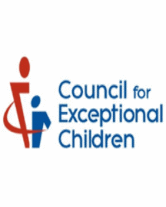Formal Assessment: Getting Help for Students with ADD
In some cases, formal assessment might be undertaken. What should you expect?
Most districts have their own system or set of procedures forassessment. Find out what referral and assessment procedures are in place in your district. Most often, these procedures will be in compliance with the Individuals with Disabilities Education Act (IDEA) or Section 504 ofthe Rehabilitation Act of 1973 guidelines, so it is important that they be explicitly followed.
Typically, assessment will be multifaceted and include:
- Classroom observations
- Results of all interventions that have been tried
- Completion of checklists and questionnaires by teachers and parents
- Psychological evaluation
- Academic evaluation
You might be called upon to complete some of these assessments. At the very least, you should plan on discussing the assessment results with other school professionals and the student's parents.
What do the results tell you in terms of setting up your instruction to better meet the student's needs? What insights about the child's characteristics were gleaned that you can put to use in adapting and modifying your instruction and organizing your classroom?
While there might be further discussion at this time about next steps to take (e.g., referral for further diagnosis, referral to special education), you can use this new information in crafting lessons for the student.
Excerpted from Teaching Strategies: Education of Children with Attention Deficit Disorder.







